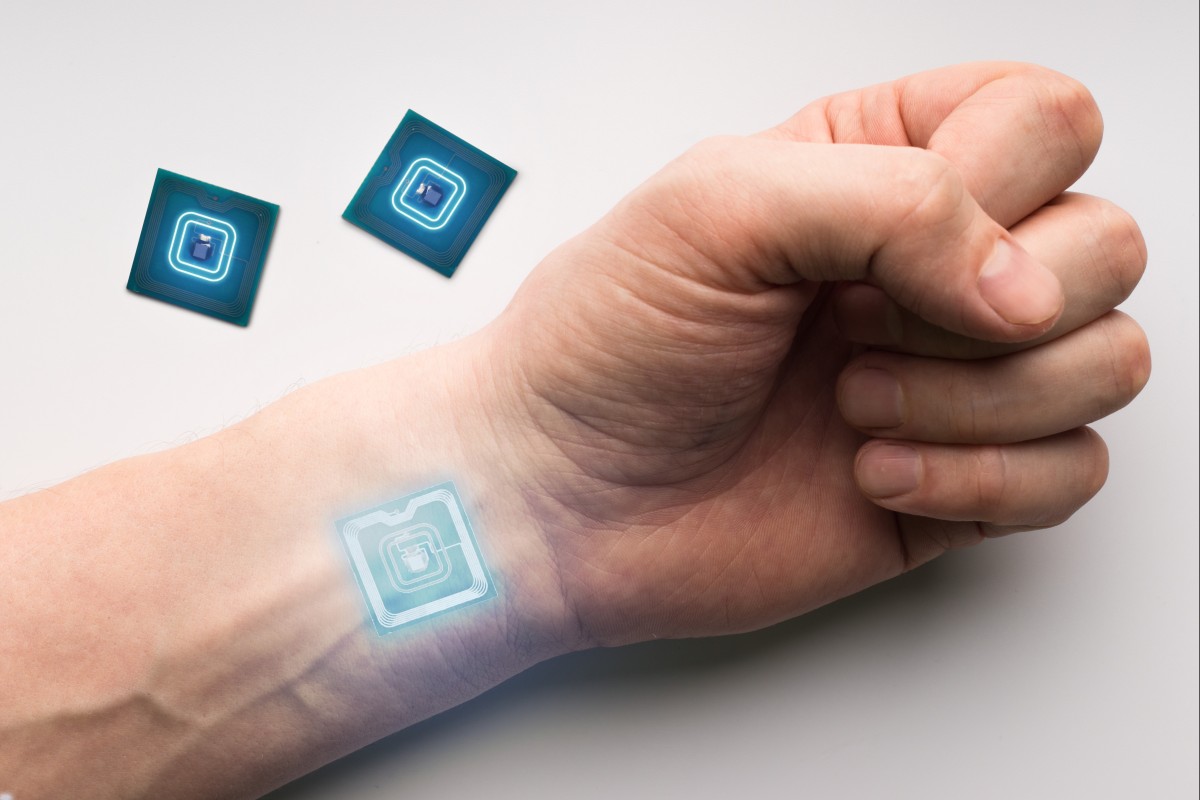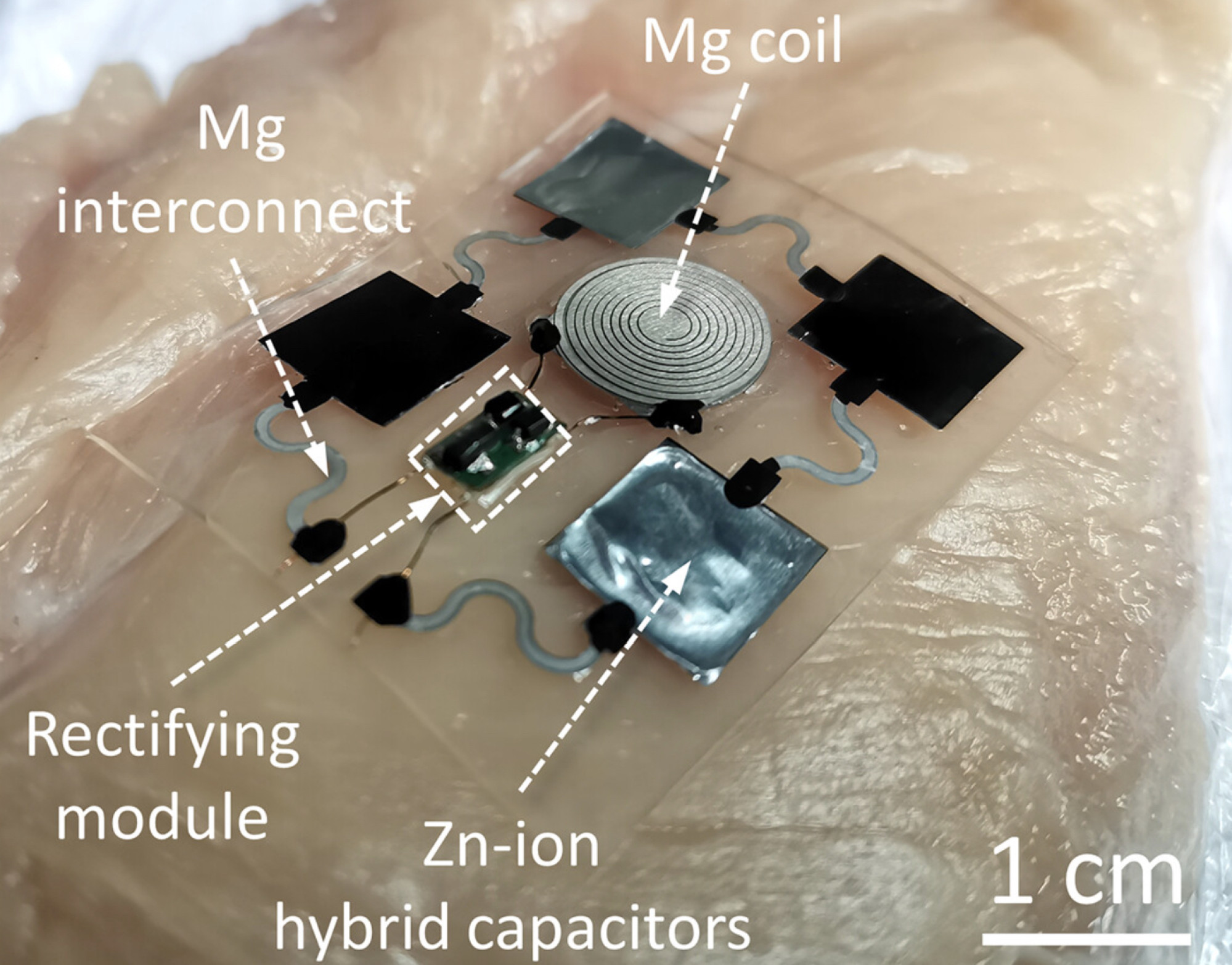beijingwalker
ELITE MEMBER

- Joined
- Nov 4, 2011
- Messages
- 65,191
- Reaction score
- -55
- Country
- Location
Under the skin: Chinese scientists create wireless charger that can stay safely in human body
- A prototype has been created for a wireless implantable power system that is biodegradable and flexible
- After showing positive test results, scientists hope the system will eventually be used to power drug delivery implants
Published: 10:00am, 20 Nov, 2023

A new biodegradable, wireless power supply system could help run drug delivery implants in the future. Photo: Shutterstock
ChinaScience
Chinese scientists have created a biodegradable, wireless energy receiving and storage device that can power bioelectronic implants – such as fully biodegradable drug delivery systems.
Implantable bioelectronic systems, such as monitoring sensors and drug delivery implants, are minimally invasive, reliable ways to precisely monitor and treat patients.
However, according to a paper published on Thursday in the journal Science Advances led by researchers from Lanzhou University, the development of power modules to run these devices has lagged behind the creation of biocompatible and biodegradable sensors and circuit units.
Though there are biodegradable power supply units, they often can only be used once and have insufficient power generation for biomedical applications, according to the paper.
Meanwhile, power supply units connected to transdermal chargers can cause inflammation, and ones powered by non-rechargeable batteries may need to be surgically replaced, which can cause complications, according to the paper.
To address this gap, the researchers proposed a wireless implantable power system with “simultaneously high energy storage performance and favoured tissue interfacing properties”, as its soft and flexible design allows it to adapt to the shape of tissue and organs.

The power supply and storage device created by a team of Chinese scientists is biodegradable and wireless. Photo: Lanzhou University
The wireless power supply device consists of a magnesium coil, which charges the device when an external transmitting coil is placed on top of the skin above the implant.
Power received by the magnesium coil passes through a circuit before it enters into an energy storage module, made up of zinc-ion hybrid supercapacitors.
Supercapacitors store power as electrical energy, in comparison to batteries which store it as chemical energy.
While supercapacitors store less energy per unit, they have high power density and can therefore consistently discharge a high amount of energy, according to the paper.
The prototype power supply system – contained in a flexible biodegradable chip-like implant – integrates energy harvesting and energy storage into one device.
Power can pass through the circuit directly into an attached bioelectronic device, as well as into the supercapacitor where it is stored “to ensure a constant, reliable power output” once charging is complete, according to the paper.
Both zinc and magnesium are essential to the human body, and the researchers note that the amounts contained in the device are below daily intake levels, making the dissolvable implants biocompatible.
The entire device is encapsulated in polymer and wax, which can bend and twist according to the structure of the tissue it is placed in.
Tests of the device in rats indicated that it can work effectively for up to 10 days, and fully dissolves within two months.
The length of time the device can function can be altered by changing the thickness and chemistry of the encapsulation layer, according to the paper.
Drug delivery systems could be integrated into different tissues and organs in the body, and “play a vital role in localised, on-demand drug delivery and therapy”, the paper said.
To demonstrate the functionality of the power supply, the researchers connected stacked supercapacitors with a receiving coil and a biodegradable drug delivery device and implanted it into rats. The implanted prototype was not encapsulated into one device – it had separately encapsulated pieces joined together.
The drug delivery device containing an anti-inflammatory medicine was implanted into rats with yeast-induced fever. During 12 hours of monitoring, the temperatures of the group without implants were significantly higher than those with the implant.
The researchers said there was still the issue of turning the device on and off, as it only stopped when it ran out of power – but they said controlled triggering of charging could control the on-off duration.
In rats given the implant that was not charged, the researchers said there was also some passive drug release, as the temperatures recorded in this group were also reduced compared to the control group.
However, the paper said that the prototype “represents an important step forward in advancing a wide range of transient implantable bioelectronic devices with its potential to provide effective and reliable energy solutions”.

Chinese scientists create wireless charger that can stay in human body
Biodegradable energy storage device could one day be powering drug delivery implants.
